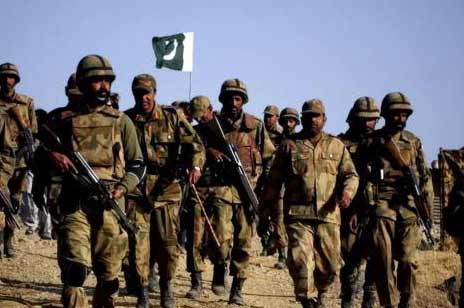
Pakistan Persistent despite Saudi Pressure
Jawid Ayoub
Pakistan’s refusal to join the Saudi-led aggression on Yemen depends on various reasons.
The foremost reason is that the Pakistani forces are torn between Pakistan’s eastern and western borders. On the one hand, Pakistan is engrossed in clashes with its nemesis - India - on its eastern front, as well as on Pakistan’s western border with Afghanistan on the other hand, whereby it is engaged in combating the Taliban extremist movement.
Furthermore, the second reason is that Islamabad fears serious local divisions if it joins the coalition. As for the third reason, Pakistan fears damaging its regional interests in case it engages in Middle Eastern disputes.
"It was not easy for Pakistan to refuse the Saudi appeal to join the coalition by way of deploying vessels, aircrafts, and ground troops," said Mortada Boya, the advisor of the former Pakistani Prime Minister Benazir Bhutto in a special interview with al-Ahed news website.
Moreover, Boya reminded that Pakistan previously participated in an international coalition to fight against the Soviet Union in the 1980s.
In a like manner, it also backed the US in overthrowing the Taliban regime in Afghanistan after a decade, pointing out that his country had learned a couple of things from both experiences.
First of all, sending military forces to any country is easier and faster than withdrawing them. Secondly, the unexpected results due to wars with neighboring countries have destabilized societies and created active military powers which are difficult to defeat.
Boya considered that the parliament’s decision was not ultimate because Pakistan adopted the "wait-and-watch" policy in the case of the Yemeni struggle. He also highlighted that a chance should be given to diplomatic efforts and coordination with regional countries, especially Iran and Turkey.
However, regarding the possibility of Pakistan changing its stance towards the Saudi appeal, Boya revealed that Saudi Arabia was exerting massive efforts and various means.
Gulf politicians not only explicitly threatened and blackmailed Pakistan, but they also monopolized Pakistan’s economic weakness as the recent visit of Saleh Bin Abdul Aziz ash-Sheikh, the Saudi Minister of Religious Affairs and the imam of al-Haram Mosque, Sheikh Khalid Al-Ghamdi, in addition to the incitement of religious groups.
According to Boya, it was unclear whether the Yemeni crisis would prolong; thus, the Pakistani stance was not conclusive to the point, bearing in mind that Pakistan was not ready to lose its relations with the Gulf States, in general, and with Saudi Arabia, in particular.
In regard to the role of the religious groups in changing the Pakistani standpoint, Boya indicated that "each political party in Pakistan has its own religious group; thus, there is no doubt about the effectiveness and importance of the religious groups in the political arena. However, this doesn’t mean that they are able to change a serious political resolution".
Nonetheless, Boya believed that the popular refusal to interfere in Yemen had recently expanded an issue that could restrict the political decision of military support to Saudi Arabia, without revoking the choice of defending the latter in the case of an aggression.
Accordingly, Boya assured that the military troops were the most important element in the decision of dealing with the Saudi appeal in relation to Pakistan’s involvement in the aggression.
Consequently, what should be taken into consideration is the affiliation of the Pakistani military organization with the US and the countries in the region, including Saudi Arabia.
